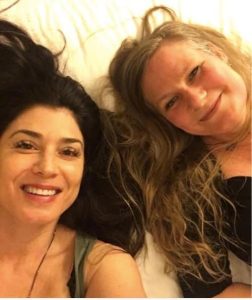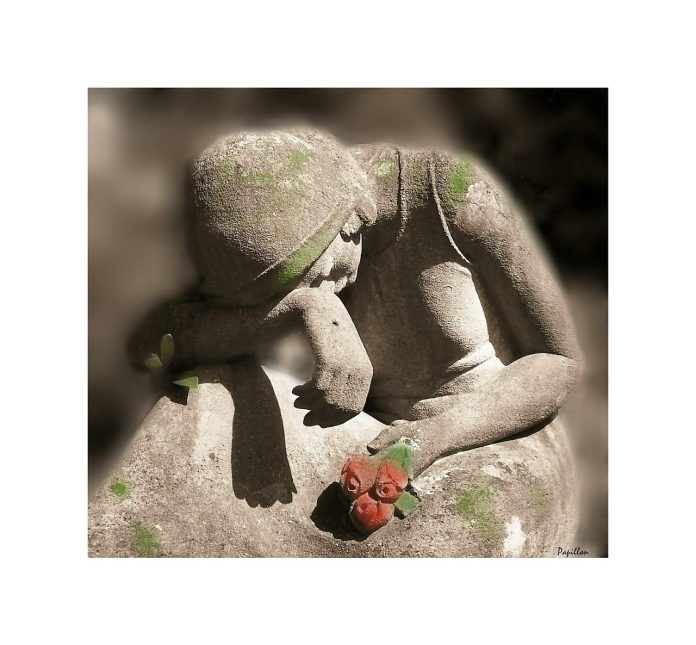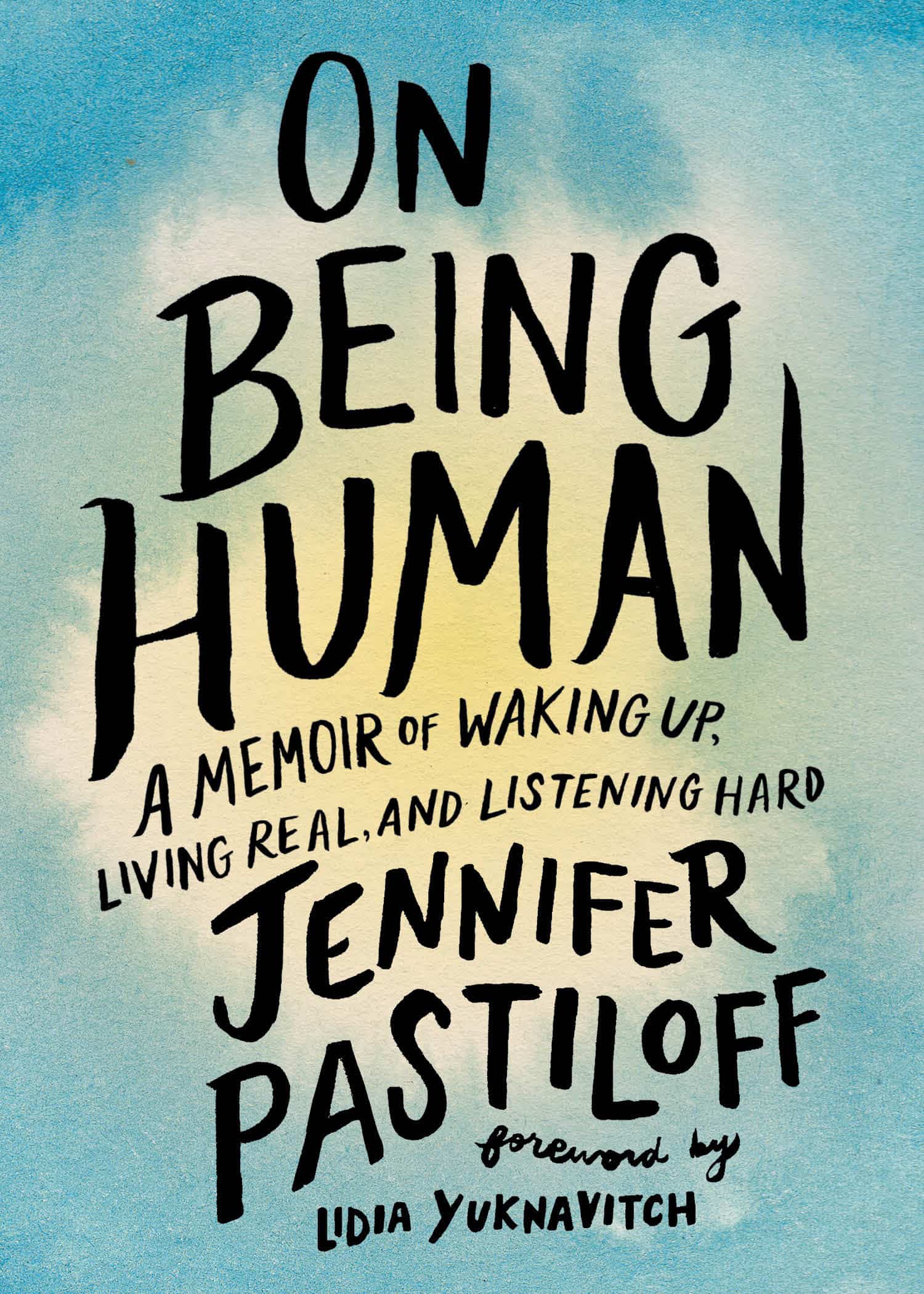CW: This essay discusses ideation and/or suicide. If you or someone you know needs immediate help, please call 911. You can also call the National Suicide Prevention Lifeline at: 1-800-273-TALK (8255) or contact the Crisis Text Line by texting HOME to 741741. The world needs you.
There’s a reason darkness is used as a metaphor for depression. In my worst moments, I felt as though there was a black spot in my head spreading like an oil spill, creeping outward, sinking in to the valleys and crevices of my brain and obliterating any possibility of light permeating. Perhaps the most shocking thing about it was how tired it made me. Never had I known that depression was so exhausting.
There is a television advertisement for an antidepressant medication whose tagline is “Depression Hurts.” The first time I saw it I felt right, like the ad writers had seen me in my natural habitat and sussed out something nobody else had noticed. I remember curling myself into a fetal position, rocking back and forth, feeling a weight and a soreness in my ribs – between them, an accordioning of my chest around my heart and lungs. My limbs ached as though I’d just climbed 4000 steps, my head hung low with fatigue. A fog settled over the top half of my brain that made focusing a chore. Depression was heavy. It was effort. It was draining, physically, mentally and spiritually.
I had experienced bouts of profound sadness before, as well as overwhelm and anxiety, but at the age of 33 I had my first experience with this kind of depression and I was stunned. I had two small children, a loving husband, a stable income and a home and many friends. Why did I feel like this? I had everything. What the hell was wrong with me?
Even after I finally reached out for help, to be honest, the kind words of friends and family were not enough. The doctor appointment where I secured that TV antidepressant and got a referral for a therapist was hopeful, but not pivotal. I was still overwhelmed and underwater.
I spent weeks trying to encourage myself with positive self-talk that wouldn’t penetrate the darkness. My happy words, interspersed with impersonations of my father telling me to Suck it Up! and Quit Sniveling! had little effect. Ultimately, it was the exhaustion, the idea that even if I made it out of this particular episode, I might have to wrestle like this over and over again that was so discouraging that suicide seemed the only way to get any rest.
At first, I didn’t want to die, I just wanted to lay down and cease to exist. I contemplated crawling under the covers and never emerging, getting into my car and driving with no destination, or simply sitting on the floor in my shower stall, crying under the warm spray until I melted away and washed down the drain. Suicide was messy and complicated, and I was possessed of enough of my senses to know that I didn’t want anyone to have to find me or clean up after what was left of me – I just couldn’t imagine living anymore. Fortunately, I didn’t have access to a cache of sleeping pills or even the energy to figure out how to get them.
With each passing day that required me to wake up, feed my children, get dressed and go through normal routines, the effort of smiling and responding to people became more monumental. It was as though this black spot in my brain added five pounds every day – the Devil’s Weight Training Program. Sometimes I could make it to 2pm before I had to lie down on the couch and remember how to breathe. Within day, it was 10am, and a few days later, I couldn’t find the strength to get out of bed at all. At that point, I wanted to die.
I was terrified to say it out loud, as though the words hovering in the air would be visible and that would make it inevitable. But inside my head, the idea bloomed, somehow taking strength from the ever-spreading darkness. I allowed myself to consider just how I would do it, taking care to dismiss methods that were messy or would leave my body to be found by family or friends. I was unwilling to just “disappear” and leave my family wondering. I couldn’t abandon my children to be raised by other people or let them grow up thinking that I didn’t love them enough to stick around. For one horrible instant, I knew how Susan Smith felt when she devised a plan to commit suicide and kill her children all in one fell swoop – it somehow seemed more humane to take them with me than to leave them motherless, with a legacy of self-blame and shame. Fortunately, the notion of killing my children had the effect of a sharp slap to the face and I stopped thinking about methods for a few days.
I won’t presume to know what anyone else is thinking or feeling when they make the decision to end their own life, and I certainly don’t want to deter folks from posting National Suicide Hotline phone numbers on their social media accounts. But I do want to say that, for me, knowing there were strangers to talk to and family and friends who loved me wasn’t enough because what I was really struggling with was the relentless weight of it. The thing that was most profound to me when I was desperate to die was that when I finally found the courage to tell my husband and my best friend I was suicidal, they offered to help me shoulder the burden and showed up over and over again to do just that.
Of course they couldn’t actually help themselves to a heaping spoonful of my despair, but just the idea that someone else would let me check out for a little while and keep me safe was enormous. B watched my daughters while I slept, sometimes for an entire day. She and my husband took over chores and activities of daily living that required precious energy as I wrestled with my emotional pain, and they acted normal. They didn’t sneak furtive glances at me or put me under a spotlight. They talked about mundane things like that neighbor who was constantly re-designing her front yard or the grocery store down the street adding a deli, which reminded me that life was happening all around me without any effort on my part. They walked the dog with me and pointed out the cattails and ducklings – not as some sort of message that all was right with the world, but as a way to focus my attention outside myself, to interrupt the shitstorm of negativity whirling about in my brain.
I benefited from medication and therapy, to be certain. Without them, I would have eventually found a way to die, and it was important to know that there were people who loved me and would miss me greatly had I killed myself. But the most profound intervention for me came in the form of the people who were willing to help me hold what was too heavy for me to hold all alone. Sitting with me when I cried until I couldn’t breathe, not trying to talk me out of it or offering solutions, but simply showing up over and over again and reassuring me that I didn’t have to do this alone was what saved my life.
I have no idea whether Kate Spade or Anthony Bourdain or any of the not-so-famous people who killed themselves felt any of these things – the weight and pressure of depression, the absolute bone-tired weariness of slogging through another day with the prospect of so many more stretched out ahead. But I’m certain some of them did, and I think it’s important to know that it’s possible to want to give up just because you’re tired, and finding people who will help you hold this immense burden while you get help from professionals can be vital. It doesn’t necessarily look like much from the outside, but 15 years later, it’s why I’m still here.
Jen’s book ON BEING HUMAN is available for pre-order here.


